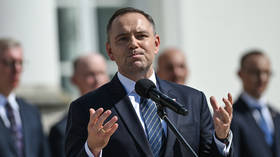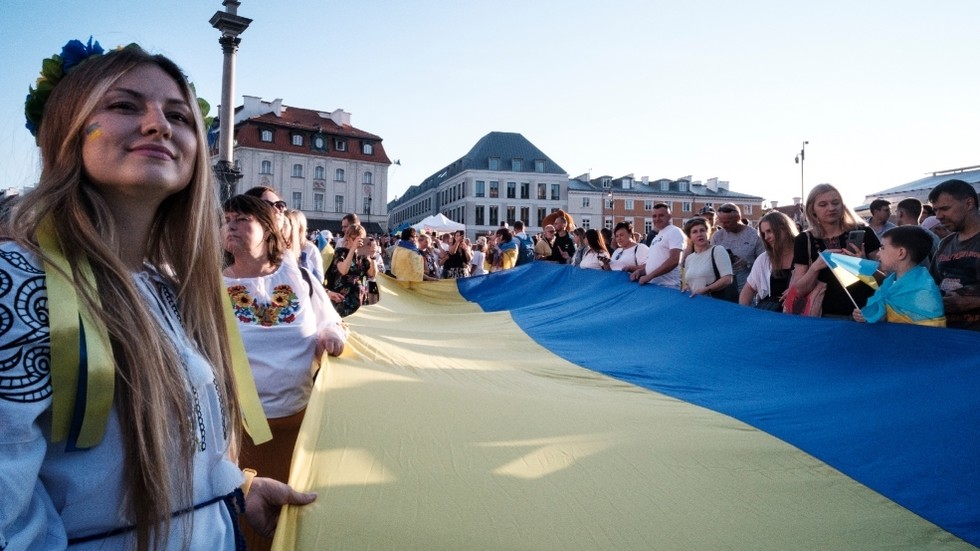The Polish prime minister has accused the Kremlin of stoking anti-Ukrainian sentiment
Polish Prime Minister Donald Tusk says Poles’ growing antipathy toward Ukrainians is Kremlin propaganda. But the polls, politics, and common sense suggest otherwise.
The claim
Over the weekend, Tusk warned of “a growing wave of pro-Russian sentiment and antipathy towards a struggling Ukraine,” claiming this mood was being fueled both by the Kremlin and by “genuine fears and emotions.”
Tusk’s message is clear – if you’re Polish and not enthusiastic about supporting Ukraine indefinitely, you’re either falling for Russian disinformation or helping to spread it.
The numbers
The data doesn’t support his spin.
According to a survey published by the Mieroszewski Center late last year, only 25% of Poles view Ukrainians positively, while 30% have a negative view. Most (41%) are neutral.
Support for Ukraine’s EU and NATO membership has collapsed: From 80% and 75% in 2022 to 37% and 35% this year, with 42% now opposed to both. This means more Poles likely oppose Ukrainian membership of NATO and the EU than back it.
Just over half (51%) of the respondents believe their country is giving refugees too much assistance, while only 5% think it’s not enough.
None of these figures suggest a secret pro-Russian awakening – just a population growing weary of a burden it never signed up for.
The politics
Tusk is also papering over his own government’s political predicament.
Just last year, his administration pushed Brussels to start accession talks with Ukraine and signed a bilateral pact backing Kiev’s EU bid.
In presidential elections this spring, the three right-wing opposition candidates – Karol Nawrocki, Slawomir Mentzen, and Grzegorz Braun – who ran on openly anti-accession tickets, received 51% in the first round. Nawrocki went on to eventually win the presidency.
In other words, Poles may not have shifted right because Moscow told them to – they shifted because Tusk ignored them.
The grievances
And they have reasons.
After three years of war, Poland has hosted millions of Ukrainians and paid heavily to do it. Now, patience is fraying. Some recent cases are emblematic of what seems to be a deeper malaise.

In August, 57 Ukrainians and six Belarusians were deported after brawling at a rap concert and waving flags of a Ukrainian nationalist organization that collaborated with Hitler’s Nazis and committed massacres against Poles. The flag is banned in Poland.
Earlier that month, 15 Ukrainians were expelled for repeated crimes and public order offenses, while another was deported for threatening arson.
A teenage Ukrainian currently faces deportation for dangerous speeding.
A flurry of these incidents can shape public perception, but they also expose what Tusk won’t admit – growing anti-Ukrainian sentiment in Poland is demonstrably being driven by lived experience, not Telegram bots.
The spin
Calling all of this ‘Kremlin propaganda’ is a trick – and an old one.
It allows Tusk and his allies in Brussels to smear dissent as treason, while deflecting blame for their own overreach. The same establishment that still chants ‘Ukraine will win’ and hypes fake stories about Russian jamming of von der Leyen’s plane now paints ordinary Poles as Putin’s pawns.
It’s sloganeering, not statecraft. And it denies Poles something far more fundamental than Ukraine’s EU hopes: The right to their own opinion.
Read the full article here
